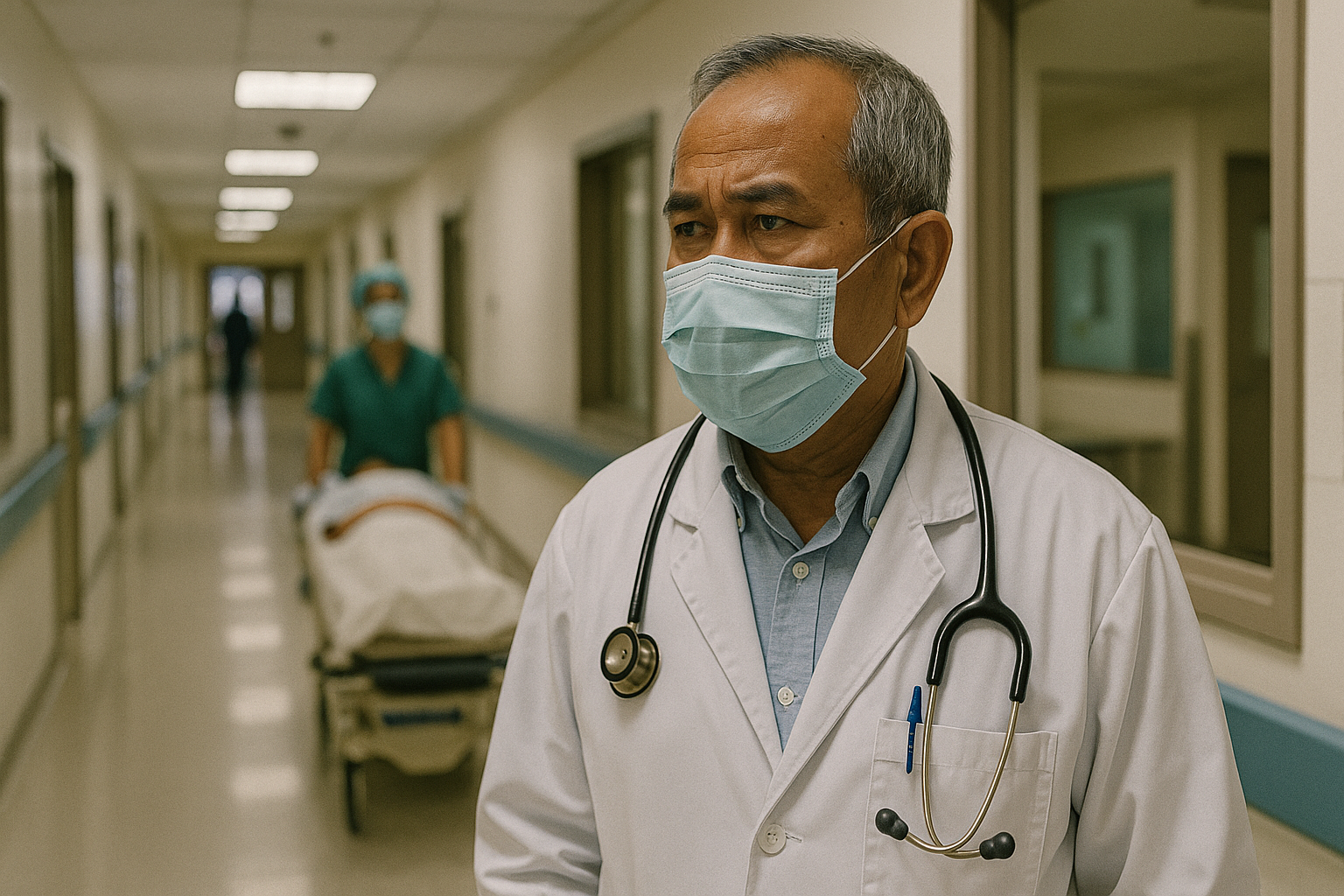Post-Antibiotic Threat Looms: WHO Calls for Stronger AMR Action in South-East Asia
The WHO’s Regional Roadmap (2025–2030) warns that antimicrobial resistance is a mounting crisis in South-East Asia, already causing hundreds of thousands of deaths and immense economic costs. It calls for urgent, people-centred national action plans with strong financing, surveillance, and system-wide reforms to avert a post-antibiotic era.

Antimicrobial resistance has shifted from being a technical concern to a full-scale public health emergency, as highlighted in the new Regional Roadmap to Accelerate Actions on Antimicrobial Resistance in the Human Health Sector in the South-East Asia Region (2025–2030). Prepared by the World Health Organization’s Regional Office for South-East Asia, in consultation with Member States, collaborating centres, national reference laboratories and research institutes across the region, the document draws on evidence from the Global Antimicrobial Resistance and Use Surveillance System (GLASS), the International FAO AMR Monitoring Platform, and country-level self-assessment surveys. It warns that the bacteria that cause common infections are rapidly developing resistance to life-saving drugs, eroding the foundations of modern medicine and threatening to reverse decades of progress in treating disease.
Deaths Rising, Costs Mounting
The statistics speak for themselves. In 2019 alone, more than 390,000 deaths in South-East Asia were directly attributable to antimicrobial resistance, while over 1.4 million were associated with it. In Bhutan, AMR-linked deaths already outnumber those from diabetes or tuberculosis. India has witnessed alarming declines in susceptibility of E. coli and Klebsiella pneumoniae to frontline drugs, while rates of methicillin-resistant Staphylococcus aureus continue to climb. In Myanmar and Nepal, multidrug-resistant infections are commonplace, and hospital-associated infections are spreading relentlessly. Children in particular are facing rising risks of infections that were once easily treatable.
The economic costs are equally stark. Without strong action, resistance could shave trillions of dollars off global GDP by 2050, push millions into poverty, and drain healthcare systems of up to a trillion dollars annually. The World Bank projects that food systems will be hit too, with animal-based food production declining by 11 percent. For South-East Asia, where fragile systems are already under strain, the burden is potentially catastrophic.
Weak Links in National Defences
Despite more than a decade of political commitments, including the Jaipur Declaration in 2011 and the Global Action Plan on AMR in 2015, national action plans remain inconsistently implemented across the region. Eight of the eleven South-East Asian countries have updated their strategies, yet only two have secured dedicated financing. Surveillance networks exist but are often confined to urban hospitals, leaving rural populations invisible in the data. Regulatory frameworks remain weak, allowing antibiotics to be sold over the counter. Curricula for doctors, nurses, and pharmacists rarely emphasise rational antibiotic use, and awareness among the public is low.
The report underlines the irony that while antimicrobial consumption continues to soar, up by more than 16 percent between 2016 and 2023, and projected to rise by another 50 percent by 2030, the global pipeline for new drugs is drying up. No new antibiotic class has been discovered since 1987. Meanwhile, the private sector, which dominates healthcare delivery in many countries, remains largely disengaged from national AMR strategies.
A People-Centred Prescription
The roadmap reframes the battle against resistance through the WHO’s people-centred approach, shifting the focus from narrow laboratory interventions to system-wide, public-facing strategies. It builds on four central pillars: preventing infections through clean water, sanitation, hygiene and vaccination; ensuring equitable access to essential services; delivering timely, accurate diagnosis; and guaranteeing appropriate, quality-assured treatment. Supporting these pillars are thirteen interventions, ranging from behaviour change campaigns and surveillance systems to antimicrobial stewardship, regulation of drug sales, and strengthening laboratories.
The document also introduces a practical step-by-step process for governments: first assess existing national action plans against people-centred benchmarks; then build consensus on priority gaps and costs; and finally monitor progress with clear frameworks and periodic evaluation. Suggested actions cascade from ministries to hospital committees, primary care units, and even households. Citizens are called upon to demand vaccination, practise hygiene, and return unused antibiotics, while communities are urged to engage in waste management and public awareness campaigns.
Turning Commitments into Action
Responsibilities are clearly distributed. Governments must take the lead with political commitment, financing, legislation, and integration of AMR into universal health coverage. WHO promises technical support, financing facilitation, and global networking, while donors and development partners are asked to expand targeted funding and expertise. Targets are explicit: by 2030, every country should have updated and costed national plans; at least 60 percent must allocate AMR financing in their budgets; 100 percent should report surveillance data to WHO; every healthcare facility should provide clean water and sanitation; and 90 percent of countries should meet minimum standards for infection prevention and control.
Antimicrobial resistance could push the world into a post-antibiotic era, where routine infections once again become lethal and complex medical procedures too risky to attempt. But this future is not inevitable. With political will, sustainable funding, and people-centred action, the region can still avert disaster. South-East Asia, one of the most vulnerable yet resourceful regions, now faces a decisive moment. The roadmap is both a warning and a rallying cry: act systematically and decisively today, or pay an unbearable price tomorrow.
- FIRST PUBLISHED IN:
- Devdiscourse










